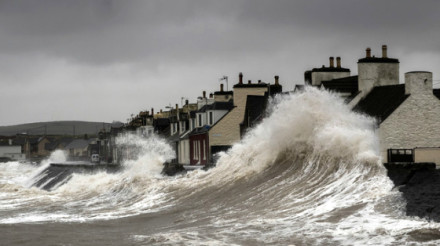Under 500 days from their deadline, the Millennium Development Goals (MDGs) have changed the world, but there’s much more to do.

Traditionally over the summer when Parliament is in recess there’s often a ‘silly season’ when trivia can dominate the news. There’s been no such season this summer. The news has been deadly serious. From the downing of MH17 do the events in the Middle East reports from around the world have felt unrelentingly grim.
Behind the headlines, unreported conflicts rage on; pain, disease and hunger are a fact of life for far, far too many. But we must not despair.
What’s wrong with the world rightly catches our eye, but for many of the world’s poor the story of the last 25 years has been one of sure and steady progress.
A big part of the reason for that progress are the MDGs. A simple set of global objectives to help improve the life chances of millions of the world’s poorest people.
Since 1990, partly as a result of that agreement, poverty has halved, 90% now gain primary education (where crucially there is now equality between boys and girls), 17,000 fewer children die each day, maternal mortality is down 45%, and 2.3billion have gained access to clean drinking water.
Listing statistics like this can always feel a bit dry, but just think about the real change those numbers represent. How many full and happy lives are lived because of the seismic change of the last 25 years?
No wonder many have described the MDGs as the most successful international agreement in history. In under 500 days we will reach the deadline for achieving the MDGs. Whilst not every objective will be reached the progress has been remarkable. Now the world looks to create a new set of goals for the next fifteen years – the Sustainable Development Goals (SDGs) – and at its heart must be an issue that has been neglected for far too long: climate change.
Labour have called for a tough headline commitment on climate change at the very centre of the new SDGs, as well as for broad consideration of environmental sustainability to run through the entire agreement. Labour’s position doesn’t only represent what’s best for the world, but what’s best for Britain too.
The UK economy is far from immune from the impacts of climate change. Whilst it is impossible to ascribe any specific extreme weather event to climate change, the increasing frequency of destructive weather is a simple fact. There were three times as many natural disasters from 2000 (when the MDGs were set) through 2009 as there were from 1980 through 1989; moreover, climate-related events accounted for nearly 80% of the increase. At home that means more of the damage caused by floods and strong winds, but the chaos wrought around the world hits us as well.
In 2011 alone, the Thai floods cost the British Insurance industry more than £1.4billion in net losses – in turn hitting the British exchequer through lost revenue. The Horn of Africa drought affected more than 12 million people, and saw the British taxpayer stump up £200million in emergency relief, and that year’s spike in the price of food saw the price of some fruit and vegetables rise a by a third in just twelve months.
So for the UK climate change isn’t someone else’s problem, it’s also ours. Globalisation isn’t a cliché, it’s a now permanent fact of life.
And our world is already changing. By 2030, global population will have grown by another billion – 96% in developing countries – global food demand will be 35% higher, our thirst for water will rise by 40% and our energy needs will be fully 50% more than today.
On top of this climate change is not an isolated issue, it has a multiplier effect, and as well as intensifying the challenges we already face, it threatens to reverse the gains we have worked so hard to achieve.
The link between climate, poverty and development is undeniable. To give just two examples; in 2012, 18 million people were left hungry because of repeated droughts in the Sahel region; in the last 50 years, rainfall is down by 25% in the Sahel, and on current trends, temperature rises will increase poverty in countries including Malawi, Uganda and Zambia by up a third by 2030.
So the next set of development goals must be sustainable in more than just name. Because addressing climate change isn’t an added extra for development – it is development. That’s why the international community must come together and force through meaningful and ambitious targets.
Next month, Ban Ki-moon will publish the next major milestone on the road to the sustainable development goals. The British government must do all it can to ensure that that report meets the climate change challenge head on. British politicians and diplomats should be doing all they can now and over the coming month to push for a significant climate change goal with ambitious and achievable objectives to finally set the international community on a path to deal with this crisis before it’s too late.
The MDGs helped change the world. Over the next 15 years our world will change again. If we don’t meet the challenge of climate change that change won’t be for the better.
Jim Murphy Shadow Secretary of State for International Development



More from LabourList
Exclusive: Poll shows Starmer more trusted than PM on Middle East crisis
Revealed: Poll shows 1 in 4 Tory voters says Rayner faces ‘smear campaign’
‘Ignore the noise – the soft left is alive and well in Open Labour and beyond’